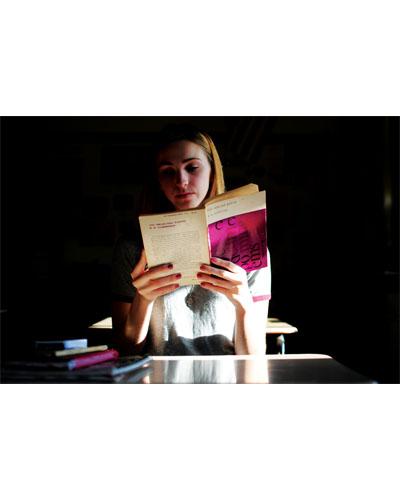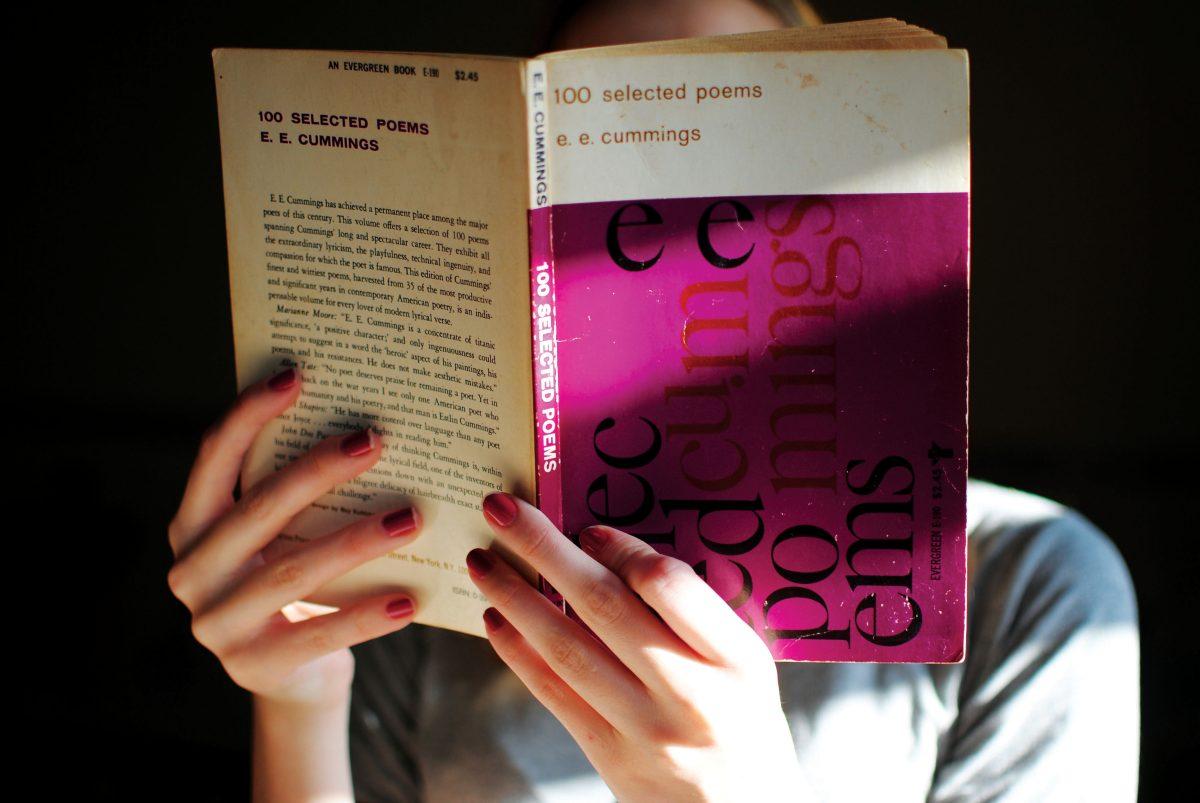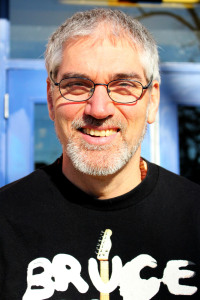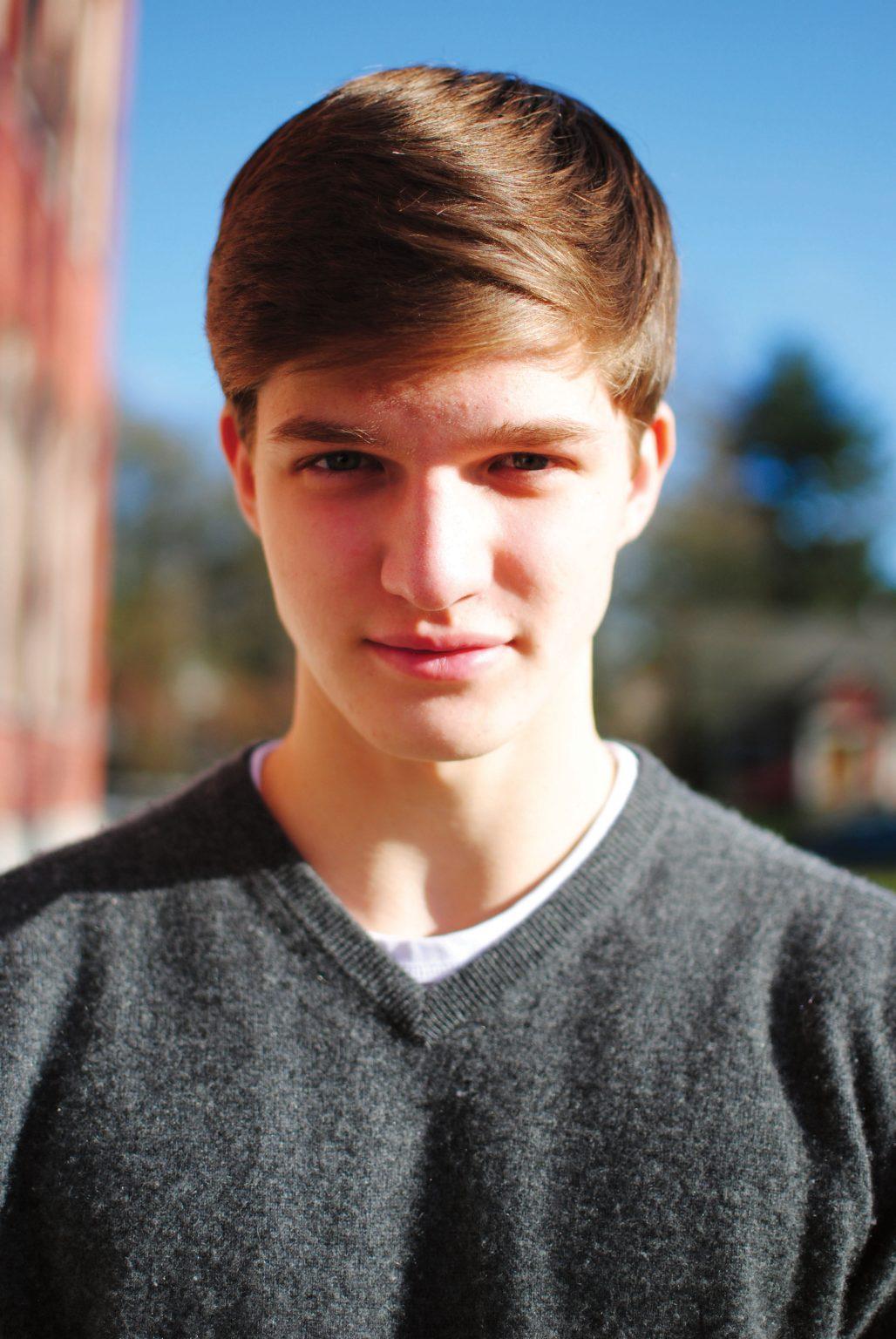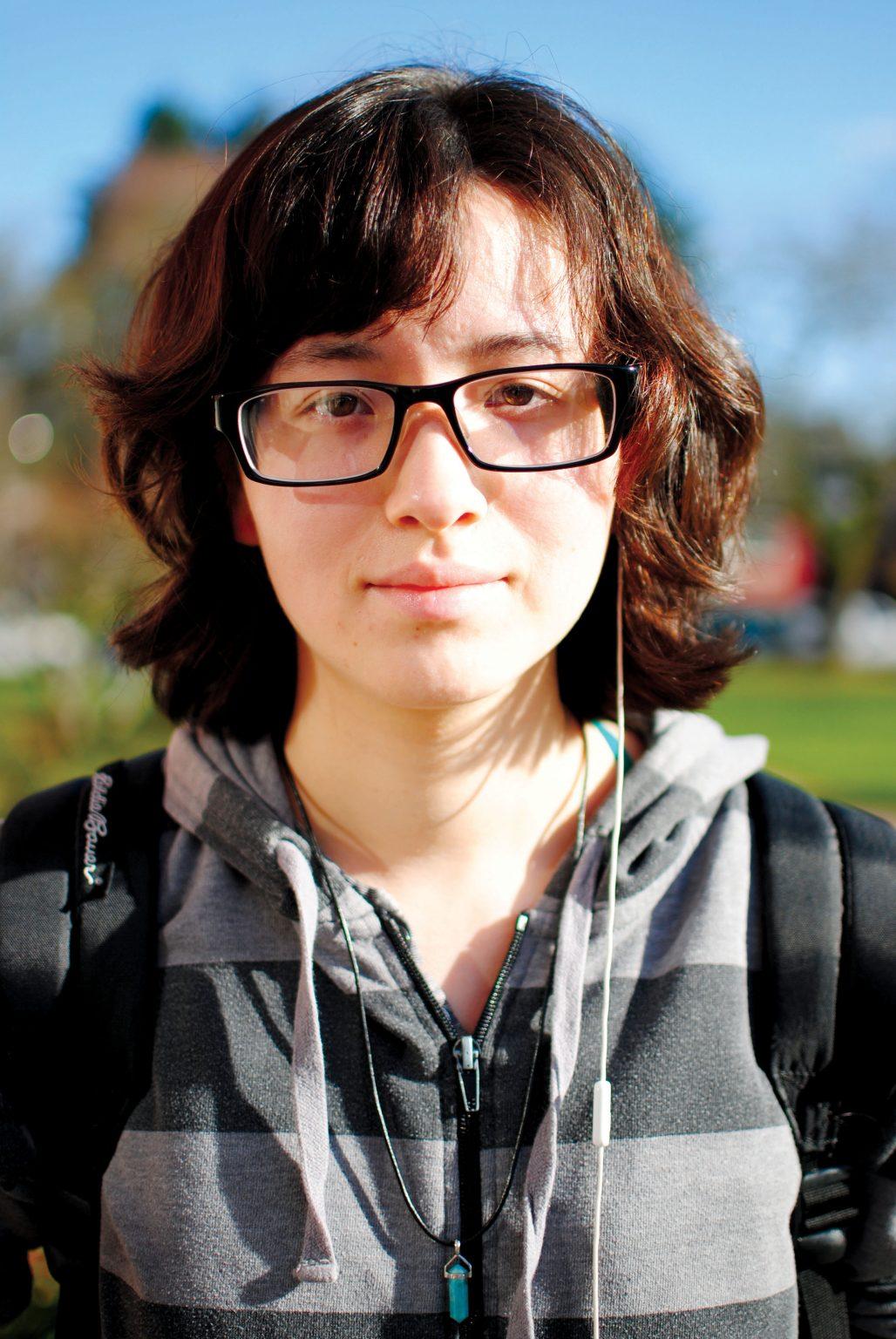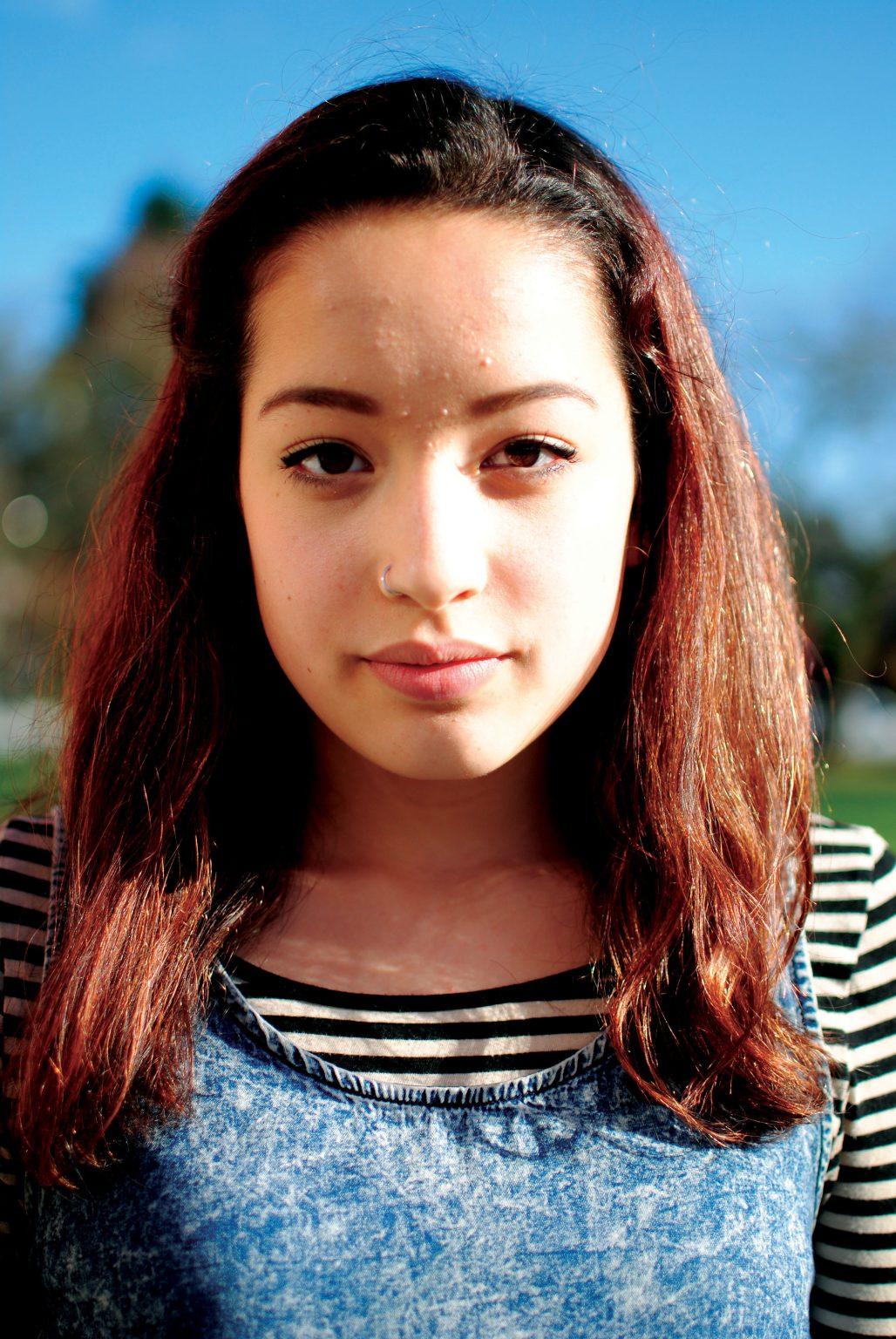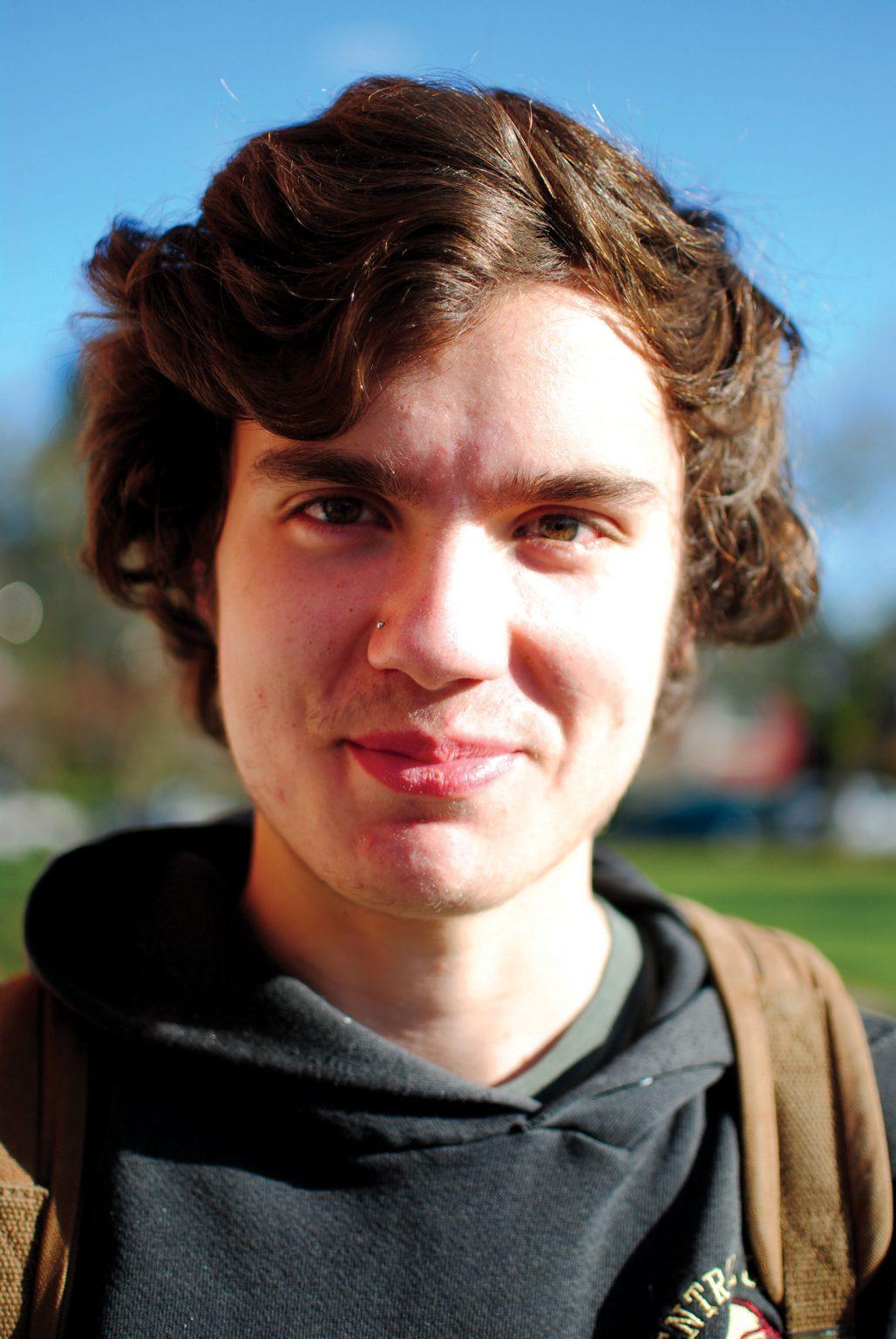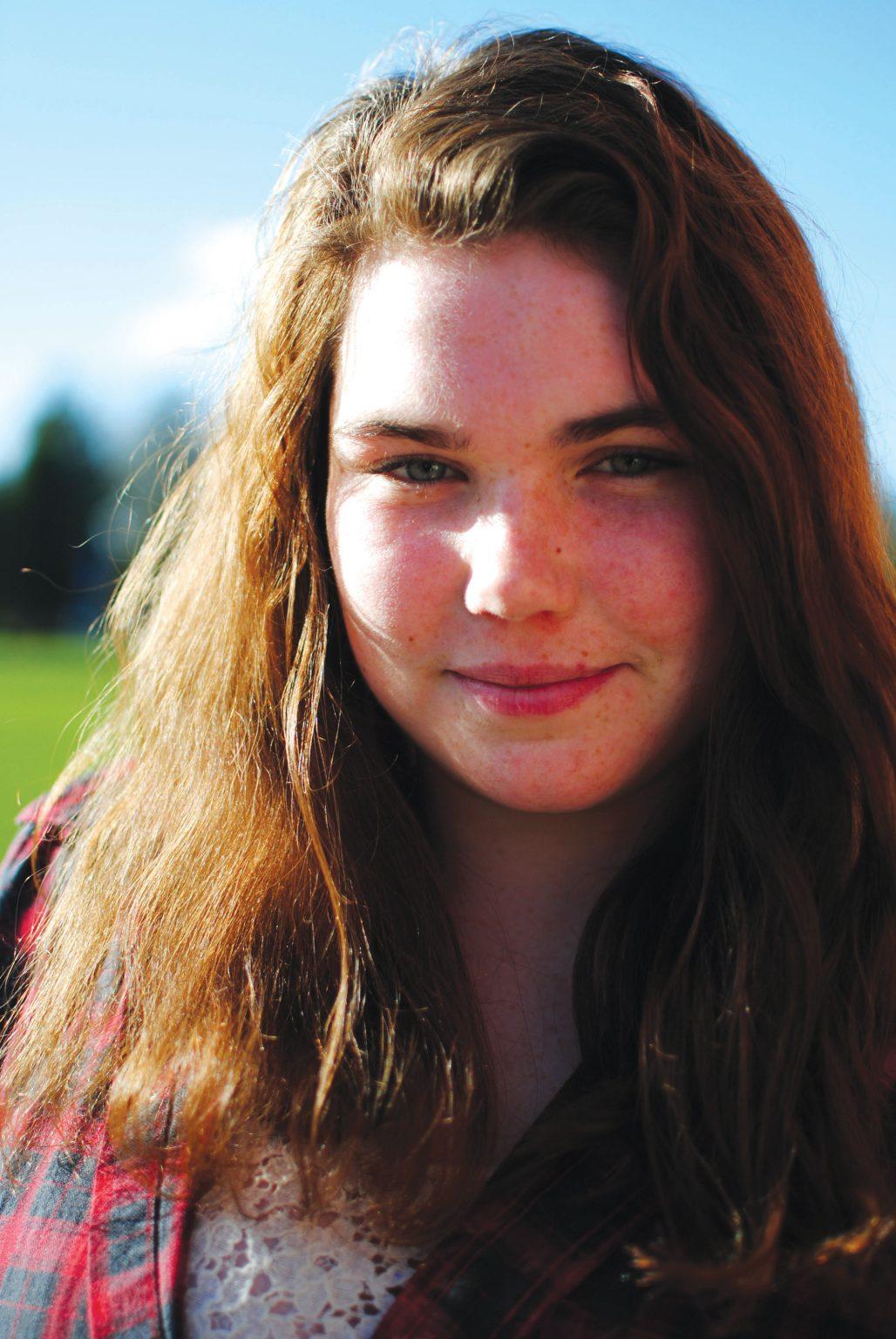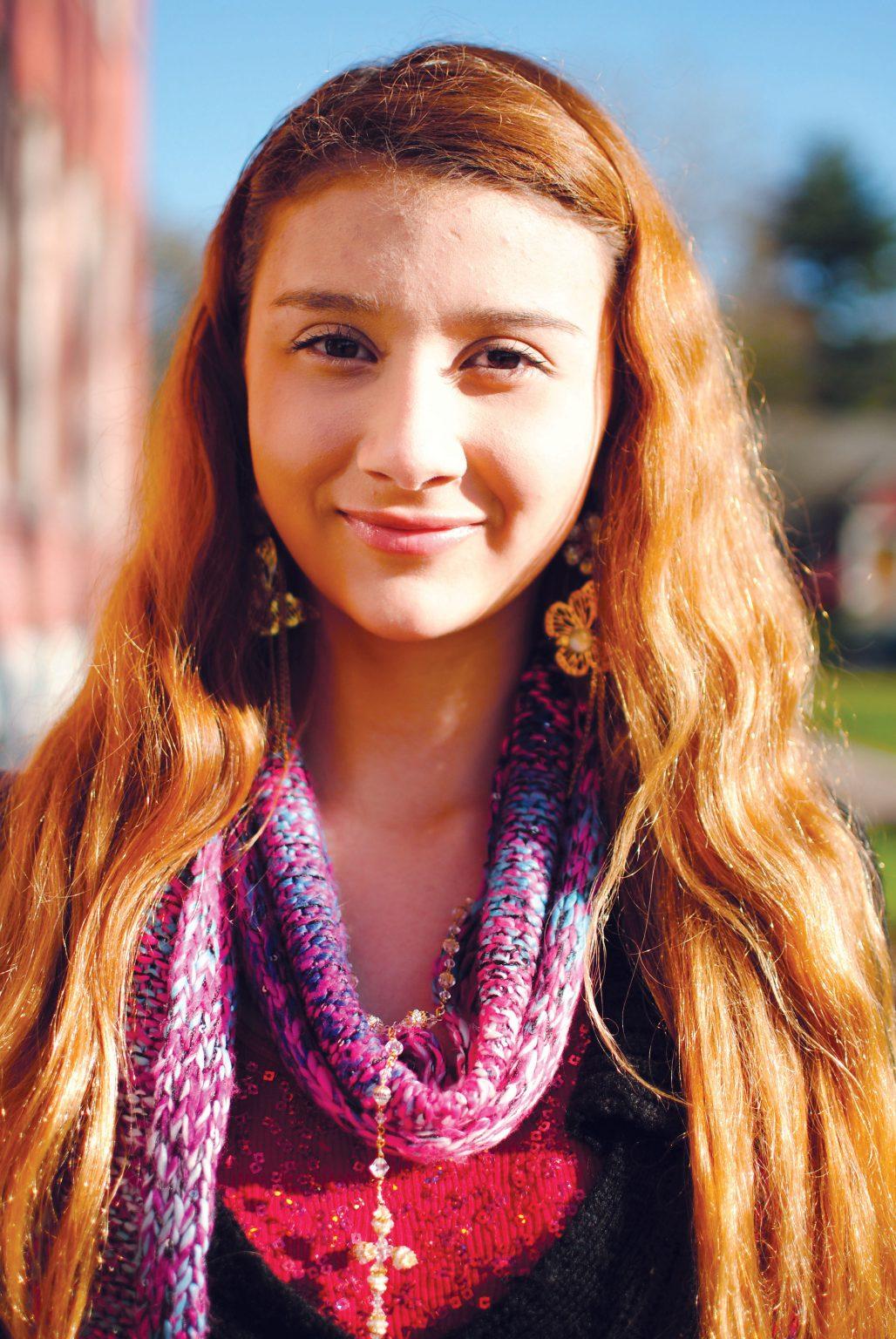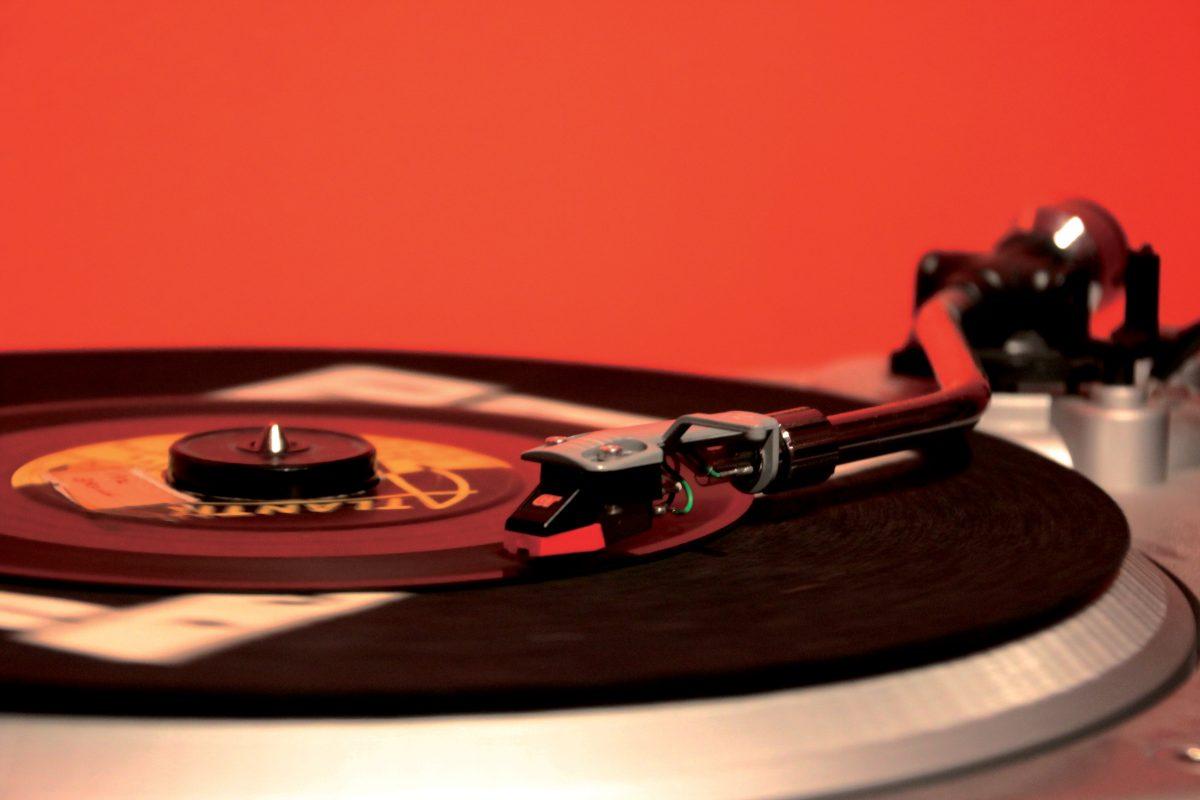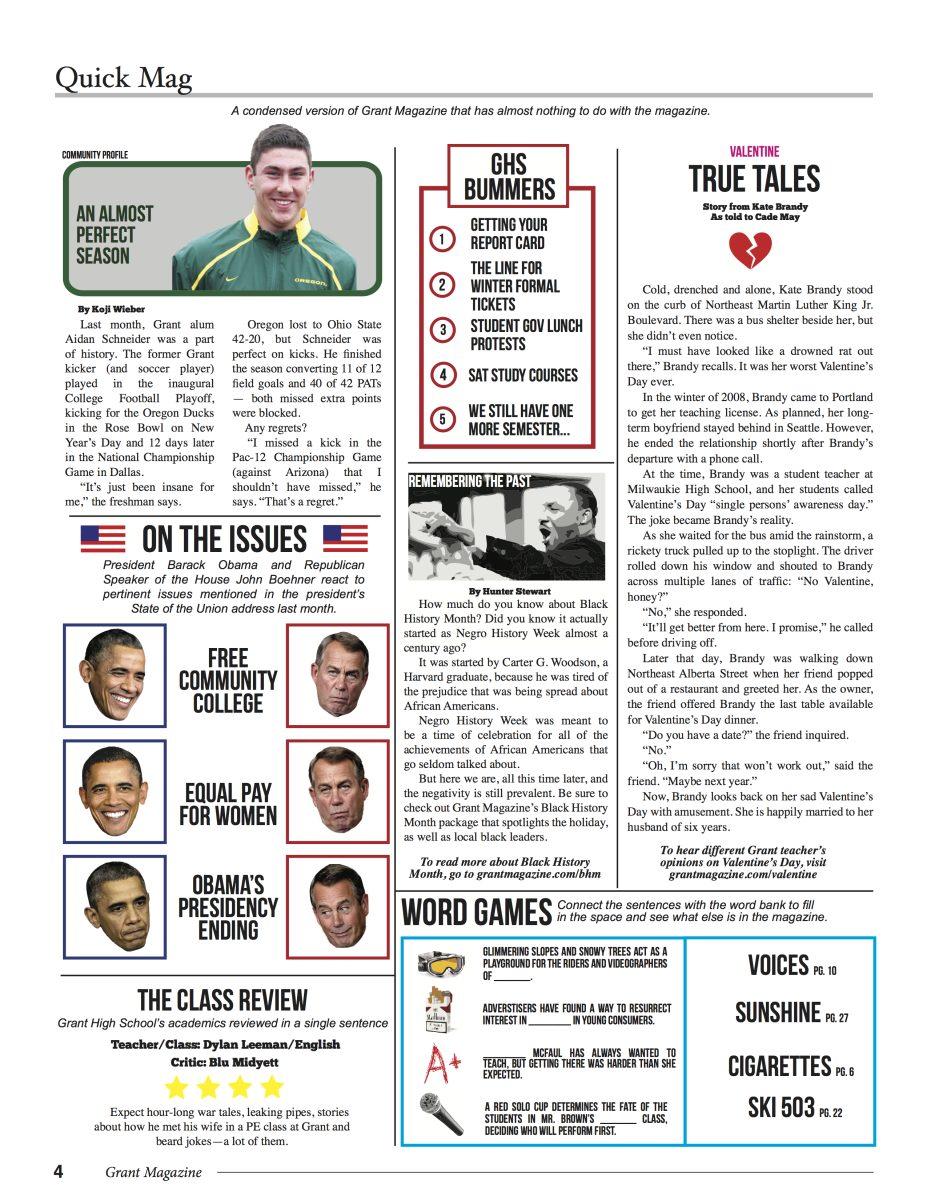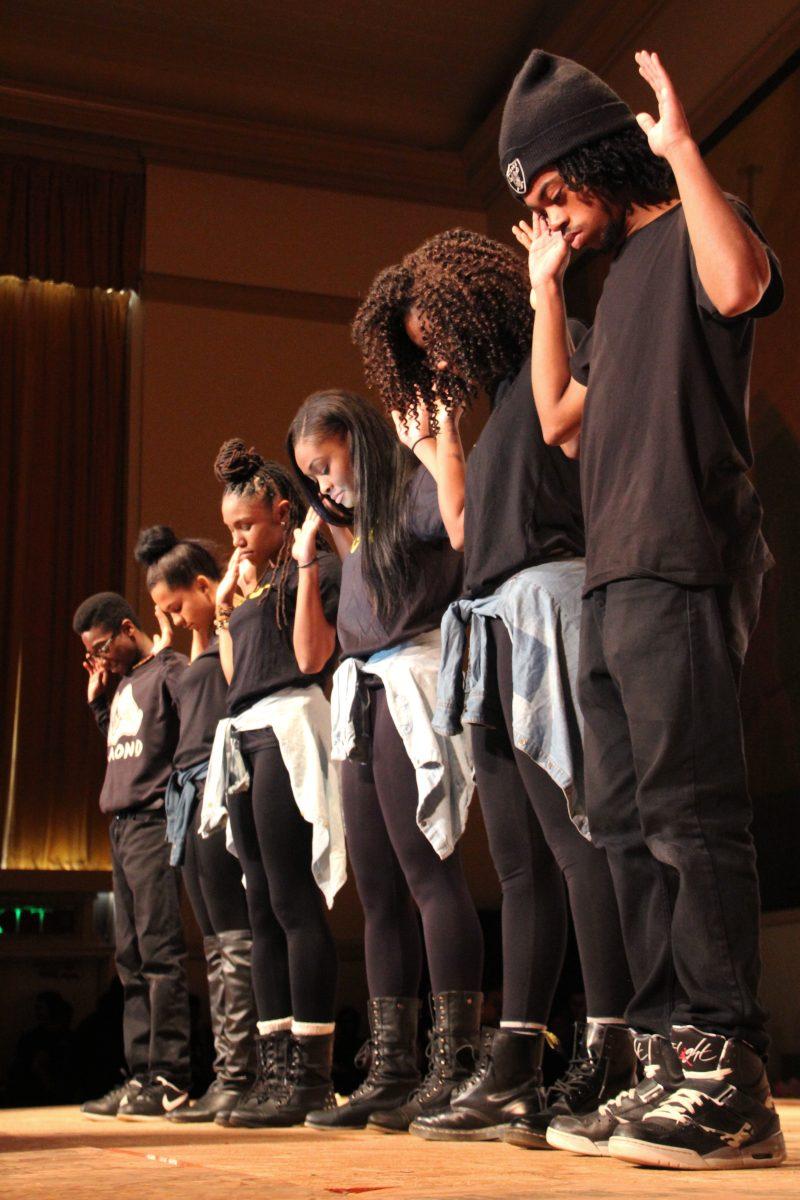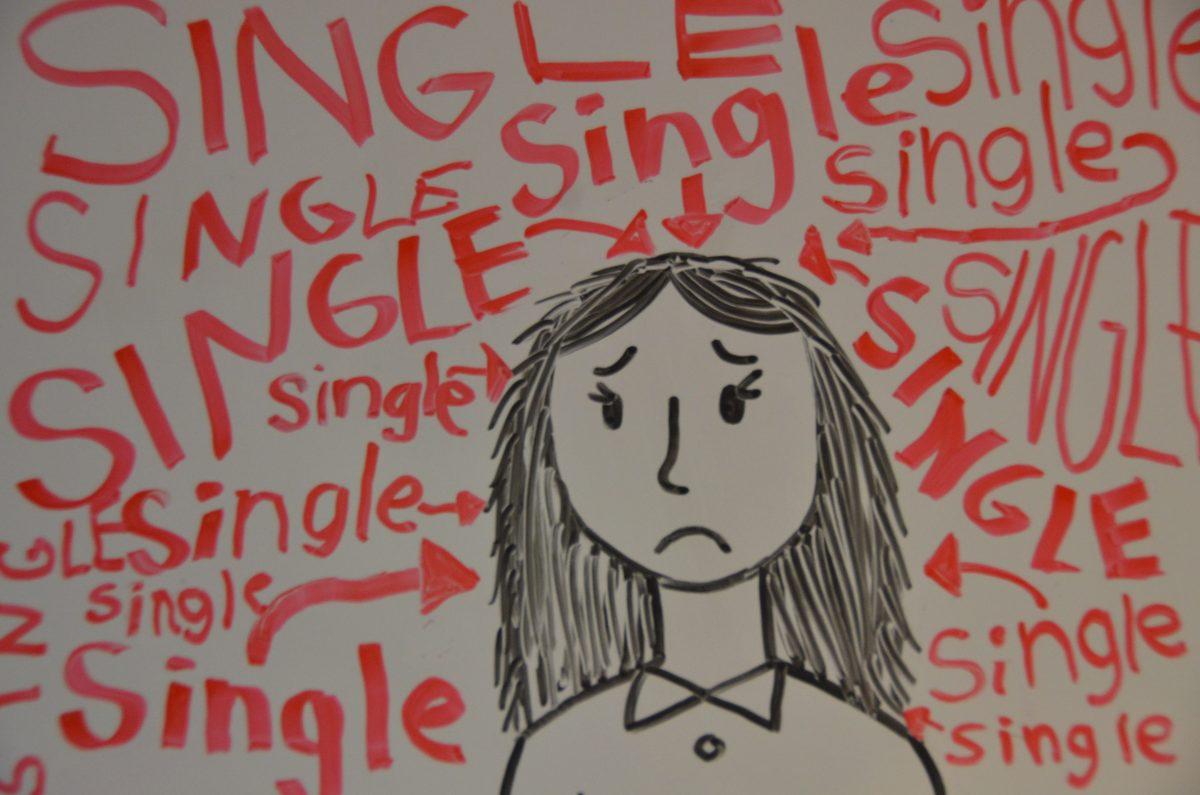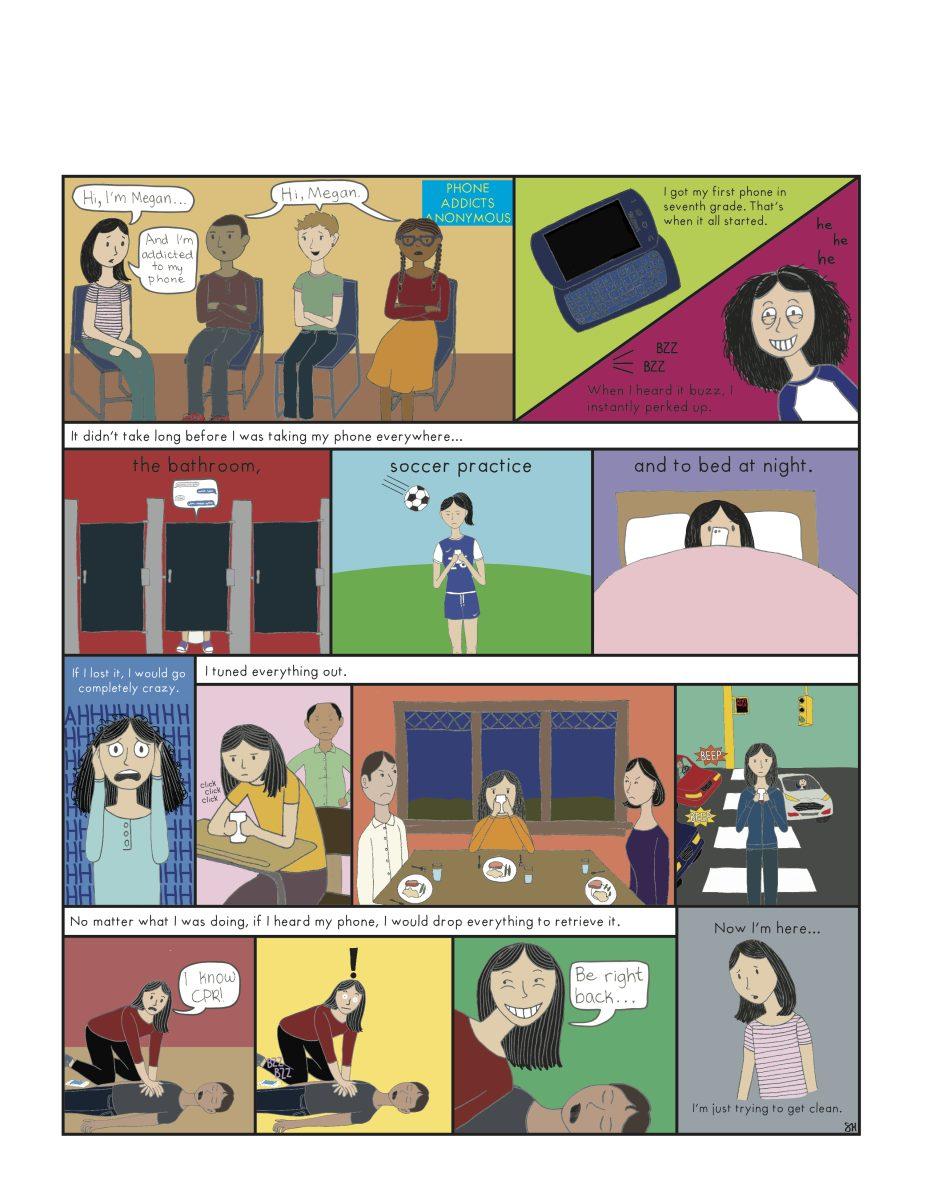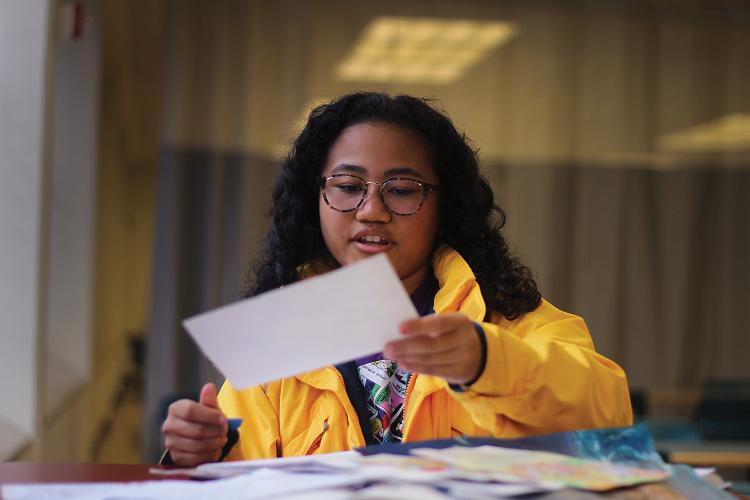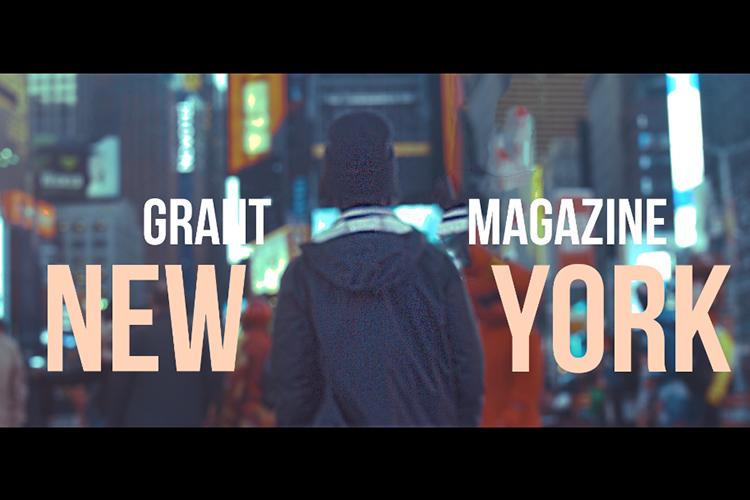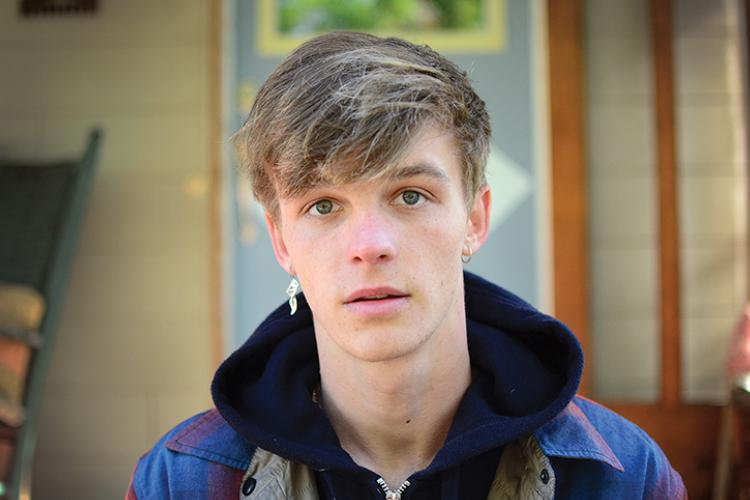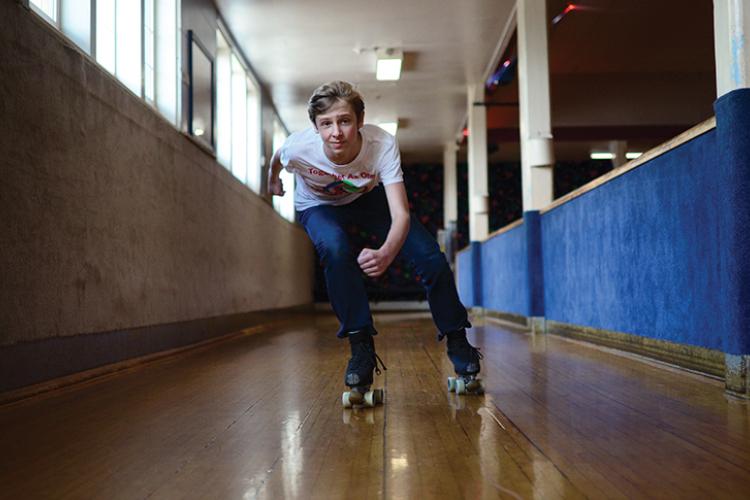The large classroom on the second floor of Grant High School’s south wing is almost silent. Only the steady scratching of pencil on paper can be heard as 10 students collect the thoughts they will share in a few moments.
A tall man with greying hair and Chuck Taylor Converse sneakers weaves his way to the front of the room, slowly drawing a single popsicle stick from a red Solo cup. The students tense. They know the drill.
“Eli,” he says with an amused smile, inviting laughter from the rest of the class.
Eli Hacker lifts himself from a slouched position and ambles to the front. Shaking slightly, the junior removes his hands from his sweatshirt pockets, adjusts the black microphone and takes a breath to start his poem.
Now in its third year, Grant teacher Richard Brown leads these students in a performing arts elective called Voices. The curriculum deviates from the typical high school course. Over the year, students will collaborate with local artists to explore and develop their own poetic voices, as well as learn how to write and record songs.
For some, Voices serves as a safe haven to express themselves outside of day-to-day life. For others, it has become an avenue for delving into their favorite art form. For a few, it serves as a form of introspective therapy. But for all, the class forces each student to get to know the sound of their own voices.
“The goal is all about self-expression,” says Brown. “Learning how to gain confidence in their voice, what they have to say.”
Brown taught a similar class at Roosevelt High School. In 2011, he moved to Grant and was troubled by students’ general lack of consideration for writing poetry and song lyrics. A year later, he proposed the curriculum to Grant’s administration. After receiving the OK from Vice Principal Kristyn Westphal, Brown set to work teaching the then-English course of 50 students.
“When I was in high school, music saved me,” says Brown, claiming that artists like Bruce Springsteen and Dobie Gray brought him out of a depression. Brown considers poetry to be another form of language with the ability to reach large audiences.
“He just lives for this stuff,” says junior Akayla McKenzie-Park, who prefers to sit and observe while Brown bounces around the room trying to boost the energy. “He loves it so much and he doesn’t make it stressful for you.”
The students understand what their teacher is driving toward. They say the class is a success. “When I’m walking places, phrases will occur to me and I’ll be like, ‘That could be a poem,’” says junior Lizzy Eng, who always sticks her earbuds in before sitting down to write.
While the room is small enough to hear each other without a microphone, Brown insists each student read their work performance style.
“Classes all the way on the other end of the hall can hear us performing,” says junior Nicholas Hoffer, always one to crack jokes to lighten the mood.
At the beginning of the year, hearing the sound of their own voices was intimidating for most of the students. Those who did perform funneled their nervous energy into various “tics” – adjusting hair, shaking hands or fidgeting with clothes.
Admitting to be no exception, Brown rubs his left thumb on his pant leg while performing. He acknowledges the exposed feeling of opening up to a room full of strangers and makes an effort to establish mutual trust among the students by sharing his own work frequently. “I trust him with my words and he trusts me with his,” says junior Elliott Chase.
Hoffer remembers the first few weeks in stark contrast to what the class is now. At first, intimidated by the intimate atmosphere, Hoffer says students sought out separate corners of the room. Brown rearranged the seating chart, corralling everyone to the center.
Now, some go as far as to say the intimate atmosphere leads them to share things that they don’t even share with their family or friends.
“Because of the environment we have, I’m still kind of unsure about sharing with friends,” says Fernando Garcia, worried that some of his friends might consider it “dumb” to write poetry. But as soon as the seventh-period bell rings, Garcia gets right down to work.
“After listening to their poems and looking at them talking, it’s like you know more about them because they write what they feel,” says junior Eva Emter about her peers.
Junior Leslie Meneses thinks this has brought the group closer. “I guess we’re sort of like a family, getting better each time,” she says.
“If you really want to produce something that’s good on a personal level, then you have to draw from inside,” says junior Maya Holiman, who channels her poetry into dance. “Some of that stuff that you’ve been pushing down or keeping
away comes back up.”
This level of self-introspection is what Brown hopes the students will achieve through the class.
“I wanted to step out of my comfort zone and conquer my fear,” says junior Emily Braaten, who was never much of a public speaker before taking the class. “I think the class has really helped in getting more comfortable in front of others.”
In the spring, the students will produce a CD as a group. This year, Brown is making the project a collaborative effort. The students will work with Grant’s new audio engineering class and local artists to compose, record and produce both a song and spoken word piece.
Some students have already begun the process. McKenzie-Park met with her artist, folk musician Steve Wagner, for the first time in January. “It wasn’t at all how I imagined, but it was really incredible,” she says. “I think that he really nailed it. It’s kind of a personal song, so it was really beautiful to hear.”
After the songs and poems are recorded, Grant students and local artists will gather for a CD release party.
Back in class, Hacker strides up to the front of the classroom and grips the microphone confidently. He’s no longer afraid to let his voice wander down the hall. Where he once stood shakily, hands fidgeting and speaking softly into the microphone, he now stands assertively. Hacker finishes his spoken word piece with a confident breath and walks back to his seat smiling. Brown stands in the background, taking it all in. He thinks back to the first day of class and realizes how far the students have come. He says: “We have the voice we speak, but the voice of your deeper self – the voice of poetry – that’s who you are.” ◊
Richard Brown
Age: 51
What’s on the iPod? “I used to be a DJ in college, so I like a broad spectrum of music. I’ve got The Birds, lots of 60s music. If I’m going on a road trip I love Grateful Dead when I’m driving and Bruce Springsteen’s total road music. Neil Young, Rolling Stones, you name it.”
Nervous twitch: “Sometimes the paper starts shaking in my hand. It’s like ‘will you calm down?!’ I’ll get a little nervous and a critic will jump into my head. My hand will shake.”
Writing style: “When I feel like the muse is just coming through me, I find something to write really quick. I’m not someone who says ‘I’m going to sit down and write a poem today.’ My style is just ‘write it when it comes,’ wherever I’m at.”
Emily Braaten
Age: 16
What’s on the iPod: Vienna by Billy Joel
Nervous Twitch: “I don’t really like to make eye contact with people. That’s really intimidating.”
Writing Style: “I really try to make it light and friendly than more deep and dark.”
Elliott Chase
Age: 17
What’s on the iPod: “I don’t typically stick to one genre. I listen to classical, blues, rap and alternative mainly.”
Nervous Twitch: “I’ll trip up my words,” but normally doesn’t get very nervous.
Writing Style: Using metaphors, “I try to confuse people. It’s like a puzzle.”
Eva Emter
Age: 16
What’s on the iPod: Heartache Fetish by Young and Sick
Nervous Twitch: “My dad watches a lot of British shows, so for some reason I get nervous and start talking in a British accent.”
Writing Style: “When I’m happy I write the fantasy land. When I’m normal, I write calm and straightforward.”
Lizzy Eng
Age: 16
What’s on the iPod: Robbers by The 1975
Nervous Twitch: “I don’t really know what mine is. I’m too focused on reading my poem.”
Writing Style: “I write pretty simply. I don’t try to have people read between the lines too much.”
Eli Hacker
Age: 17
What’s on the iPod: The Fever by Death Grips
Nervous Twitch: “Mine would be shifting the paper in my hand and pulling my pants up. My hands go to my belt a lot.”
Writing Style: “I write about what I see. A lot of that comes from walking around and things I see on public transportation. I saw a dude on the max juggling and that seemed like material for something.”
Nicholas Hoffer

Age: 16
What’s on the iPod: All Along the Watchtower by Jimi Hendrix
Nervous Twitch: “When I’m done performing I usually wave my hands awkwardly, like jazz hands.”
Writing Style: “I don’t think a lot of people in that class could describe their own style. I don’t think I can either, its just kind of how I write. I can’t model it around anything.”
Maya Holiman
Age: 17
What’s on the iPod: Fluorescent Adolescent by Arctic Monkeys
Nervous Twitch: “I drink a lot of water before and after.”
Writing Style: “Usually I write a lot about nature, cause that’s what comes to mind. When I’m writing a song, my lyrics tend to rhyme a lot.”
Fernando Garcia
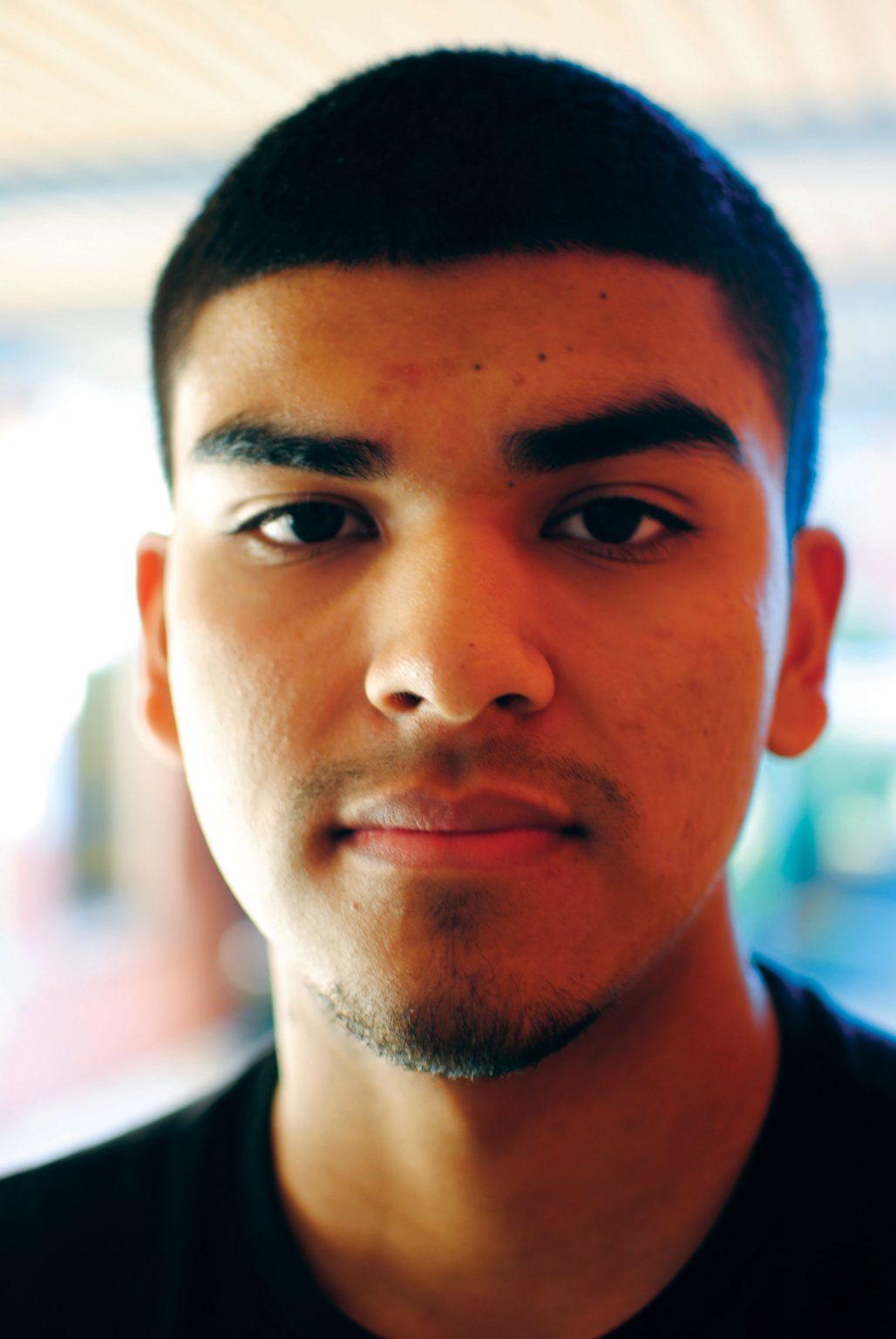
Age: 17
What’s on the iPod: Oh Boy by Cam’Ron
Nervous Twitch: “I’ll re-read my paper at the last second and try to edit it when it’s not necessary. I tend to do it when I’m in front of the classroom.”
Writing Style: “I’d describe it as really a flow of my consciousness. Usually things that I find funny or amusing, I don’t like to write about my problems.”
Akayla Mckenzie-Park
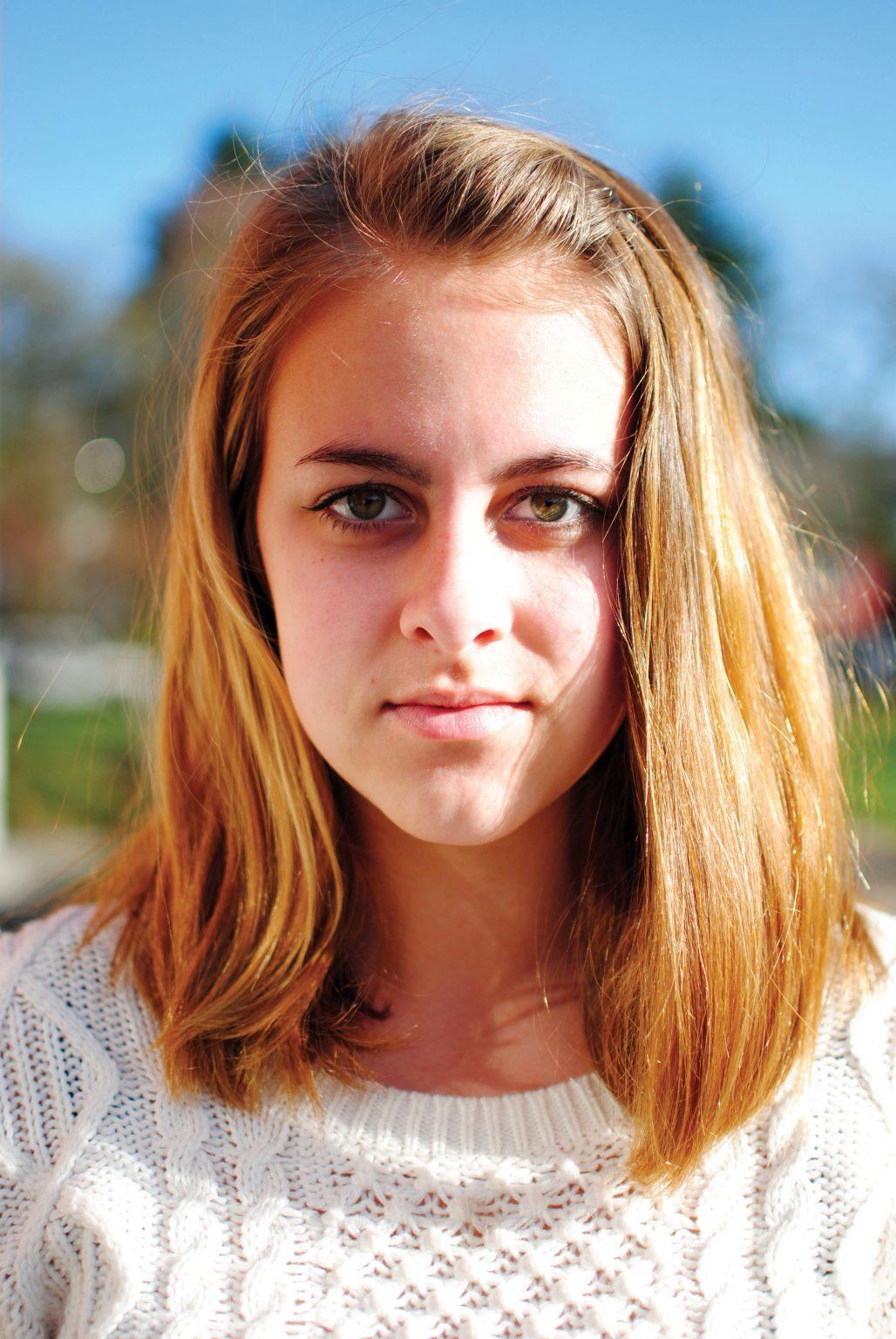
Age: 16
What’s on the iPod: Let Your Heart Hold Fast by Fort Atlantic
Nervous Twitch: “I will crack my knuckles, which isn’t good, but I do that a lot when I’m nervous.”
Writing Style: “I mainly write about struggles that are happening with my family, or struggles that happened a long time ago that I’m still trying to deal with.”
Leslie Meneses
Age: 17
What’s on the iPod: Flightless Bird American Mouth by Iron and Wine
Nervous Twitch: “I usually fix my pants, or if I’m not wearing pants I’ll flip my hair around. I’ll move it to one side or try to fix it a little, even if I’m sitting down.”
Writing Style: Doesn’t like to use the same style twice, because she’s afraid she might use it up.



























